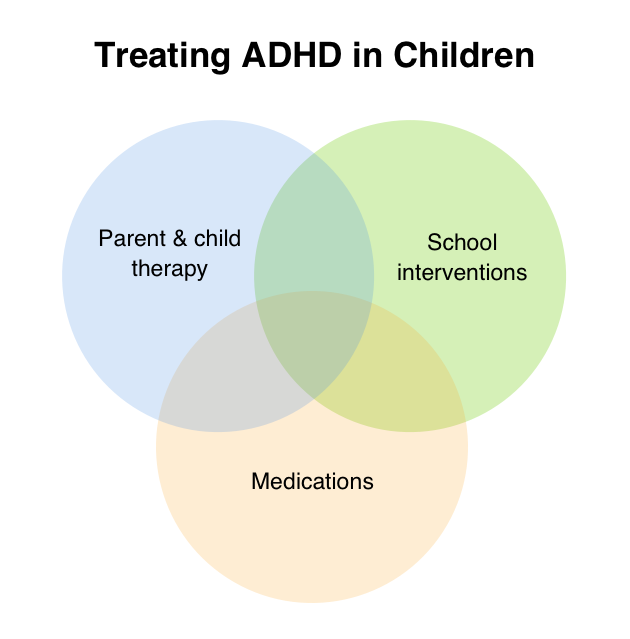The Advantages of Tailored ADHD Therapy Plans for Better Results
The implementation of tailored ADHD treatment strategies has actually emerged as a crucial method in enhancing restorative outcomes for individuals influenced by this problem (ADHD treatment). By recognizing the unique manifestations of ADHD in each individual, these personalized treatments promote greater engagement and inspiration, ultimately leading to extra efficient coping strategies.
Recognizing ADHD Variability
Although Attention-Deficit/Hyperactivity Problem (ADHD) is usually perceived as a particular problem, its manifestations can vary dramatically among people. This irregularity is influenced by a variety of factors, including age, gender, coexisting conditions, and environmental contexts. Children with ADHD may show hyperactive habits, while grownups might primarily have a hard time with attention shortages. Gender differences additionally contribute, as males are much more often identified with ADHD and often show a lot more overt signs, whereas women may present with much less noticeable inattentiveness.
Additionally, individuals with ADHD might experience a range of psychological and behavioral obstacles, such as anxiety or opposite defiance, that can complicate medical diagnosis and treatment. It is additionally worth keeping in mind that ADHD can provide differently throughout various social contexts, affecting how symptoms are recognized and addressed.
Trick Components of Customization
Customized ADHD treatment strategies are grounded in several crucial elements that guarantee efficient management of the condition. A thorough evaluation is critical, including standard score ranges, meetings, and behavior monitorings. This extensive evaluation permits medical professionals to comprehend the person's unique symptoms, staminas, and challenges.
2nd, the involvement of numerous stakeholders, including moms and dads, educators, and the individual, contributes to an alternative sight of the person's needs. Collaboration promotes an encouraging atmosphere that can adjust to the person's context and way of living.
Third, therapy plans must be versatile and versatile, enabling alterations based upon continuous responses and the individual's progressing demands. This flexibility enables the assimilation of numerous restorative methods, such as behavioral interventions, psychoeducation, and medicine administration.
Additionally, cultural and contextual factors need to be thought about. Identifying the individual's history, values, and preferences makes certain that the treatment is relevant and respectful.
Lastly, normal follow-ups and assessments are important to keep an eye on progress and make necessary adjustments. By concentrating on these essential elements, customized ADHD therapy plans can considerably boost the effectiveness of treatments, leading to improved results for people with ADHD.
Boosted Interaction and Inspiration
To properly advertise improved interaction and inspiration in individuals with ADHD, it is important to include approaches that reverberate with their rate of interests and staminas. Individualized therapy strategies that align with an individual's enthusiasms can result in increased involvement in healing activities, cultivating a sense of possession and enthusiasm for the procedure.
Making use of interactive and innovative approaches can likewise considerably boost motivation. For instance, incorporating gamification components or real-world applications of skills can make jobs more attractive and appropriate. This not only captures interest however also reinforces finding out with pleasurable experiences.
Moreover, establishing achievable and significant objectives customized to the individual can bolster inspiration. When people see their development towards personally substantial purposes, they are more likely to continue to be engaged. Regular feedback and acknowledgment of accomplishments can even more receive motivation, developing a positive feedback loophole that encourages ongoing effort.
Last but not least, cultivating an encouraging setting where people really feel comprehended and valued can substantially impact their involvement degrees. When treatment plans are established collaboratively, integrating input from the individual, they are more most likely to feel spent in their trip, eventually leading to improved end results in taking care of ADHD.
Improved Coping Methods
Developing boosted coping strategies is important for people with ADHD, as it equips them with efficient devices to navigate everyday challenges. An individualized treatment plan enables the identification of particular coping systems tailored to the individual's one-of-a-kind needs and conditions - ADHD treatment. Methods such as mindfulness, time monitoring skills, and business methods can be incorporated right into everyday routines, promoting a sense of control and minimizing anxiousness
Mindfulness practices, including meditation and deep-breathing exercises, aid people with ADHD concentrate their interest and regulate their feelings. Time monitoring techniques, such as making use of timers or breaking jobs into smaller sized, workable actions, can reduce sensations of overwhelm. In addition, organizational tools like organizers and checklists can enhance effectiveness and accountability.
Long-term Positive Results
Carrying out individualized ADHD therapy strategies can lead to substantial long-lasting positive results for people. These tailored methods, which take into consideration special signs and symptoms, choices, and life conditions, promote much more effective administration of ADHD symptoms gradually. By concentrating on the specific needs of the individual, these plans boost adherence to therapy methods and foster higher engagement in healing tasks.

In addition, tailored treatment strategies can dramatically reduce the risk of comorbid conditions, such as anxiety and clinical depression, which are commonly related to ADHD. Early intervention and constant support assistance people build durability and coping strategies, promoting general mental health and wellness.
Inevitably, Depression Doctor the long-term favorable outcomes of individualized ADHD therapy prepares not only improve the lifestyle for individuals yet also add to their general health and success in various life domain names. This alternative technique highlights the relevance of individualized care in taking care of ADHD successfully.
Final Thought
